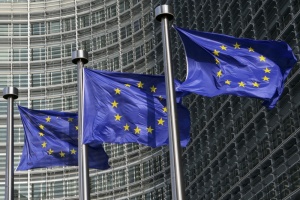Billions earmarked for EU fast broadband push

The European Commission will on Wednesday propose pumping €7bn into the deployment of high-speed broadband across the continent, with a further €2bn or more to be handed out in grants for pan-EU digital services that can make use of the connectivity.

The European Commission is to propose pumping €7bn into the deployment of high-speed broadband across the continent.
The €7bn (£6.1bn) Connecting Europe broadband infrastructure investment would, if approved by the European Parliament and Council of Ministers, largely take the form of debt instruments and equity that would be used to boost the credibility of fibre projects, ZDNet UK understands. The Commission hopes this move, backed by the European Investment Bank, will attract a further €50bn or more in private- and public-sector funding.
The EU's Digital Agenda contains a target date of 2020 for offering all citizens access speeds of 30Mbps or more, and the Commission also wants 50 percent of all citizens to be able to get at least 100Mbps by that date.
All in all, the Commission expects €270bn of investment will be needed to make this goal a reality. If it meets its targets, the Commission estimates, the EU's 23 million small to medium-sized businesses could get big benefits in terms of cloud-computing and storage usage.
Fast broadband access would also make it easier for people to work from home and produce income-generating content, according to the Commission.
Rural broadband is a key target for the funds. Telecoms companies tend to invest less in rural broadband than they do in services for more profitable, densely populated cities and towns.
However, utilities and construction companies will also be encouraged to apply for the EU funding, and the Commission thinks this competition could pressure traditional telcos into stepping up their game.
Funding plans
The investment would take place between 2014 and 2020 through a proposed Connecting Europe Facility (CEF) fund. A large motivation for the plan is job creation: according to the Commission, hundreds of thousands of people could find employment building out the fibre-based broadband systems.
A total of €50bn will be made available to address not just broadband, but also energy and transport networks. The Guardian has reported that transport will get the bulk of that sum, with smart-grid schemes getting around €9bn.
Alongside the €7bn pot for broadband infrastructure development, the Commission plans to offer more than €2bn in CEF grants to developing services that contribute towards its cherished 'digital single market'.
Successful proposals could include trans-European high-speed backbone connections for public administrations; cross-border e-government and e-health services; and pan-EU electronic ID authentication systems, to help citizens access digital services in any member state.
Electronic procurement services would also be welcome, as would co-ordinated cybersecurity systems, smart energy services and pan-EU efforts to take down illegal content such as child pornography from the internet.
Get the latest technology news and analysis, blogs and reviews delivered directly to your inbox with ZDNet UK's newsletters.